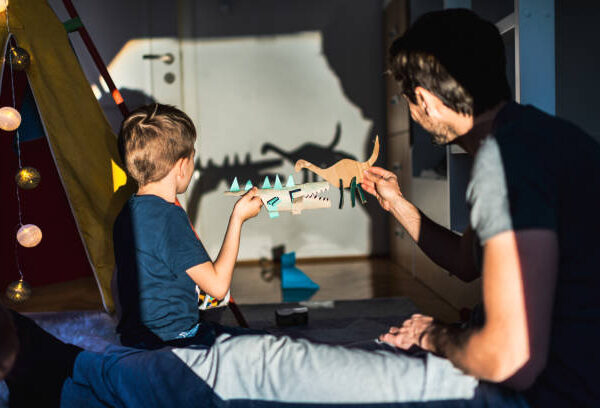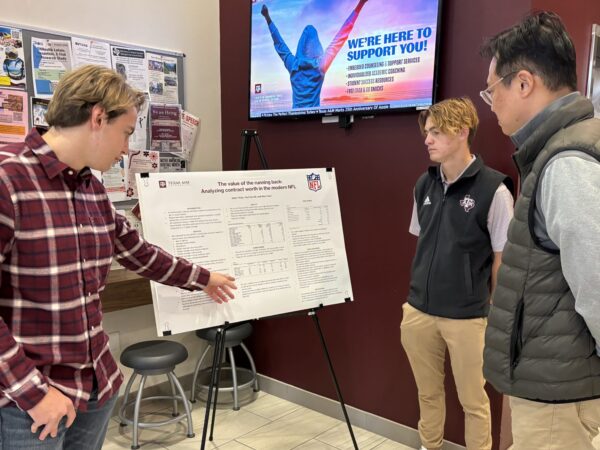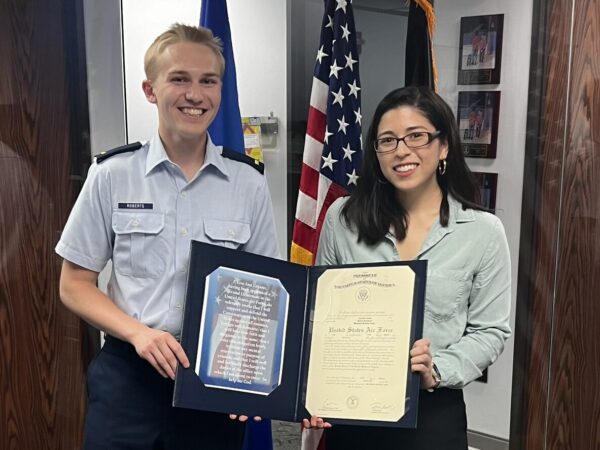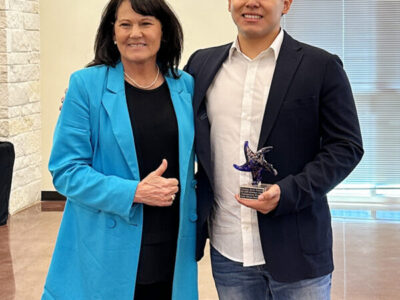Teaching history through theater positively impacts student learning outcomes
With mounting accountability pressures from standardized testing and limited resources for arts and humanities instruction, arts and cultural field trips are lower priority in U.S. K-12 schools.
However, educational policy expert Dr. Daniel Bowen found that when schools partner with arts and cultural organizations, trips like these can actually positively impact student learning outcomes.
Bowen and coauthors Dr. Brian Kisida and Dr. Laura Goodwin examined a partnership like this in Arkansas by evaluating the efficacy of a program called “Digging Up Arkansas” that infuses history content with theater.
The Trike Theatre and Walton Arts Center’s “Digging Up Arkansas” interactive live theater performance teaches upper-elementary school students about the history of their state through tableu, where actors ask students to use their bodies to pose, gesture and represent to convey historical ideas and concepts.
“The Walton Arts Center theater educators worked with local educators to identify and prioritize key state history learning objectives to creatively teach and engage student participants,” Bowen said.
To evaluate the efficacy of the program, Bowen and his team randomly assigned school groups to participate in “Digging Up Arkansas” and then investigated its impacts with student surveys that included items to measure their historical content knowledge, historical empathy, and attitudes towards learning about history, the arts, and live theater.
The historical content knowledge questions were designed to assess Arkansas history content standards based on the state-mandated Social Studies Curriculum Frameworks for students in grades three to five that were specific to Arkansas history.
They found that students demonstrated increases in historical content knowledge, enthusiasm for learning about history, historical empathy and interest in the performing arts as a result of this program.
“These findings have important implications for arts education policy and practice,” Bowen said. “I believe this study shows that teaching history through theater, and perhaps, more broadly arts integration efforts, can positively impact students on a broad array of educational outcomes.”
Educational policy implications
Unlike tested school subjects, the argument that there is intrinsic value to providing students with arts learning experiences has not been sufficient in the eyes of education policymakers. Bowen said this perspective is reflected in the substantial cuts to the arts in K-12 schooling since the 1980s.
“Finding credible and convincing evidence of these benefits has the potential to help with making a stronger, more viable case for reversing the declining role of the arts in schools,” Bowen said.
Bowen said the resources necessary for conducting such randomized controlled trials are immense and that schools are not often receptive to participating, therefore, there is a lack of experimental research in the field of arts education. This is why he jumped at the opportunity with the Walton Arts Center, specifically because it allowed him to focus on a new area, theater performance.
Bowen previously conducted a study on the Crystal Bridge Museum of American Art’s school visits program, with specific focus on the educational value of visual art field trips.
Partnerships ≠ full-time art teachers
When budget cuts to arts education lead to a decline in arts educational resources or expertise, often provided by arts teachers, schools may look to partnerships with arts and cultural organizations. Although these organizations have a wealth of resources and expertise, Bowen said they are not a complete replacement.
“I don’t think that schools should come to view these partnerships as substitutes for the remarkable value that having full-time certified arts teachers provides, but these partnerships can certainly help bolster the quality and quantity of students’ arts learning opportunities,” Bowen said.
Future research
Bowen and Kisida are launching a National Endowment for the Arts-sponsored Arts, Humanities, and Civic Engagement Lab this summer. The lab will be dedicated to conducting experimental, practitioner-engaged and policy-relevant research that addresses critical questions regarding the educational impacts of arts, humanities and civic learning opportunities.
“We will be joining, partnering, and working with several arts and cultural organizations and institutions, school leaders, policymakers, and researchers, throughout the region in hopes of further examining the remarkable impacts of arts education,” Bowen said.
The studies will be similar to the “Digging Up Arkansas” work, as well as others they have conducted with Houston’s Arts Access Initiative, the Holocaust Museum Houston and the Crystal Bridges Museum.
“We hope that these studies can help us more fully comprehend the educational benefits of the arts as well as identify ways in which arts educational programs and policies can be more effective.”
About the Writer
Heather is responsible for news coverage in the Department of Health and Kinesiology, as well as the Department of Educational Administration and Human Resource Development.
Articles by HeatherFor media inquiries, contact our Media Relations Coordinator, Ashley Green















